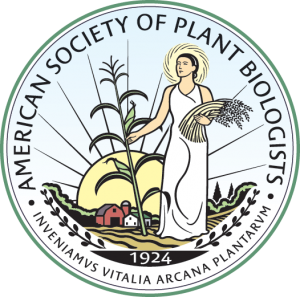Data Management 101: Tips for making your published data more Findable, Accessible, Interoperable and Reusable
Data Management 101: Tips for making your published data more Findable, Accessible, Interoperable and Reusable
Recorded June 2018
About This Webinar:
The sheer volume of experimental data being generated in biology presents both opportunities and challenges. When data are easy to access, analyze, and reuse, they can drive innovation while maximizing the returns on the investments of time, grant money, and energy that went into generating them. Most funders and many publishers have data sharing requirements but do not offer explicit advice on how to comply. The goals of this webinar are to demystify data management, introduce the concepts behind the Findable, Accessible, Interoperable and Reusable (FAIR) data standards, and offer some practical strategies that researchers can use when preparing manuscripts and associated data for publication to ensure that their published works are FAIR.
Participants will be able to:
- Understand the benefits of a well-thought-out and executed data management plan, both for themselves and the broader research community
- Understand the importance of metadata and how to apply metadata to their data sets and research artifacts
- Understand high-level concepts in data management, how to identify data management challenges in their own research, and how to identify appropriate resources/solutions for those data management issues
- Understand how to write a scientific manuscript in such a way as to avoid common problems that make data from research articles difficult to access and reuse
- Know what the FAIR data principles are and what they mean
- Know how to publish research data that comply with FAIR data standards
SPEAKERS
 Leonore Reiser PhD Senior Scientific Curator Phoenix Bioinformatics
Leonore Reiser PhD Senior Scientific Curator Phoenix Bioinformatics
Leonore is a senior scientific curator at Phoenix Bioinformatics where she primarily works on extracting and synthesizing experimental data about Arabidopsis thaliana from research articles. She received her Ph.D. in plant biology from UC Berkeley studying Arabidopsis development and completed a post-doctoral fellowship in maize genetics, before becoming a founding curator at The Arabidopsis Information Resource (TAIR). She is passionate about making it easier for researchers to access and use biological data so they can spend less time managing spreadsheets and more time making new discoveries.
 Lisa Harper PhD Senior Scientific Curator and Outreach and Education, MaizeGDB.org, AgBioData founder, USDA-ARS
Lisa Harper PhD Senior Scientific Curator and Outreach and Education, MaizeGDB.org, AgBioData founder, USDA-ARS
Lisa is a curator at MaizeGDB and has founded the AgBioData consortium of Agriculture related plant and animal databases and resources. She received her PhD in1996f from UC Berkeley, Plant Biology, maize leaf development, and completed her Postdoc at UC Berkeley in maize Meiosis and genetics. Lisa has been the curator at MaizeGDB from 2007 to-the present and is also a founder of AgBioData and current Steering Committee member. She is also passionate about making publicly funded data free and available to all and loves to put data into the correct boxes. Also, bonsai is a hobby that Lisa is passionate about- all plant scientists should be bonsai artists!
This webinar is free is freely available thanks to the support of the American Society of Plant Biologists

If you would like to sponsor an upcoming webinar please contact [email protected]




Leave a Reply
Want to join the discussion?Feel free to contribute!